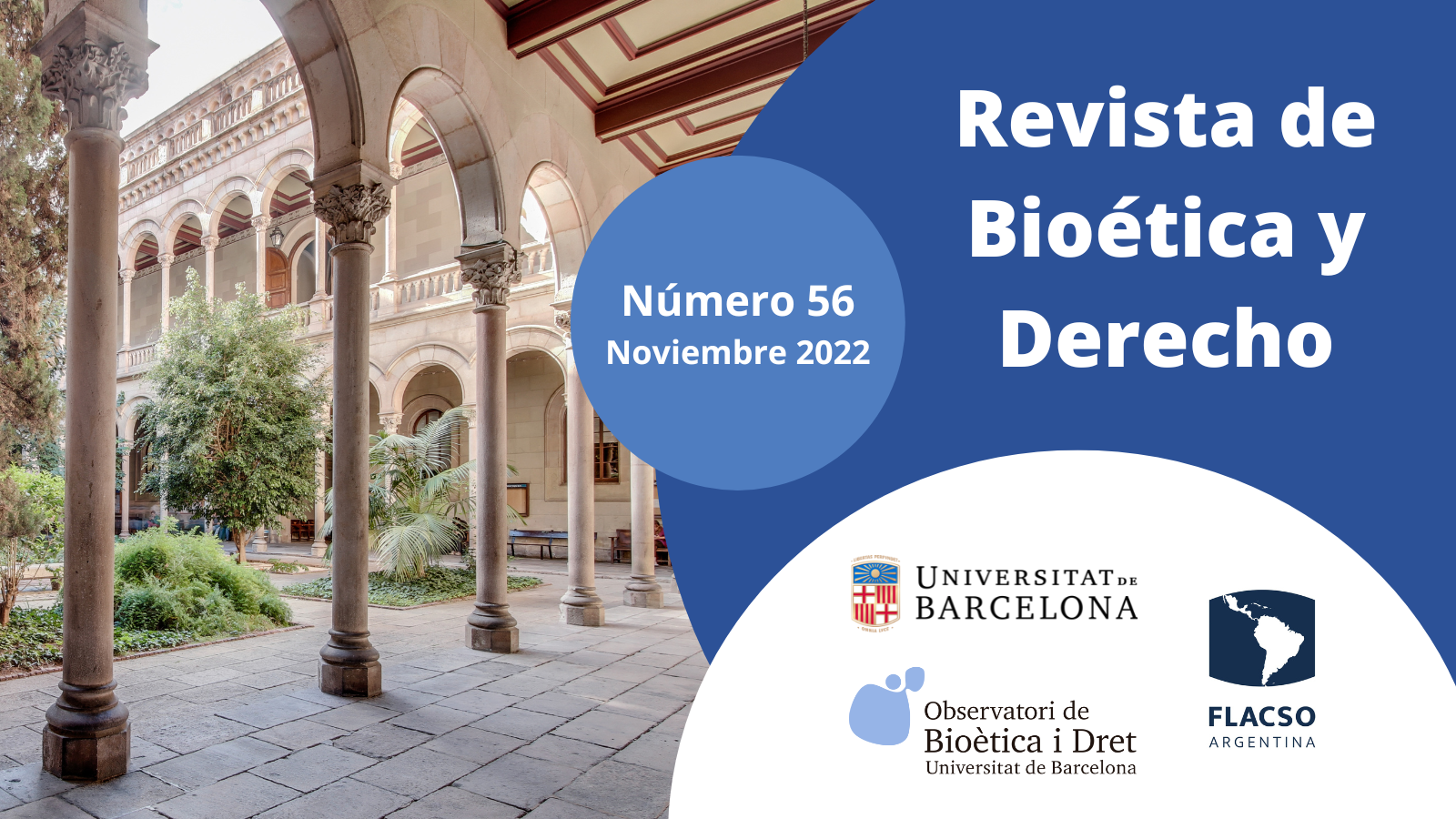Meanings of humanization in critical care. Experiences and actions of health professionals in Intensive Care Units
DOI:
https://doi.org/10.1344/rbd2022.56.38077Abstract
Humanization in the provision of health services is an ethical imperative; even for Intensive Care Units (ICU), where achieving comprehensive care focused on patients and families and not on technology is a challenge. A qualitative study is presented that used semi-structured online interviews, participant observation, and field diary. 10 private ICU workers and 10 public ICU workers participated: 6 physiotherapists, 5 doctors, 4 nursing assistants and 5 nurses. To analyse the information, ideas were codified, categorized and hermeneutics performed. Two positions were found regarding humanization, as an obligation (deontology) or as an act of respect (professionalism). Humanization is understood and practiced as: 1) good treatment and cordiality when carrying out interventions; 2) put yourself in the patient's shoes, recognizing that you have a family; 3) care that guarantees comfort to the patient through actions on the body; 4) meet therapeutic objectives avoiding suffering or harm; 5) recognize the dignity of the patient; 6) attention to the vulnerability of the patient, especially cancer. There are barriers to humanization: the pandemic, ICU supplies, rigid institutional regulations, and others. In conclusions the meanings given to humanization in critical care are mediated by practices with an emphasis on biological aspects and ideas related to respect for human dignity (privacy), good treatment and avoiding suffering to the patient. The pandemic generated a crisis for humanized care, expressed, among others, in the absence of psychosocial support for personnel working in the ICU.
Downloads
Published
How to Cite
Issue
Section
License
Copyright (c) 2022 Luis Alberto Sánchez-Alfaro, Yolima Carmona González, Yuri Viviana Silva Pinilla, Luisa Fernanda Garzón Ortiz, Mónica Alejandra Medina Carrión

This work is licensed under a Creative Commons Attribution-NonCommercial-NoDerivatives 4.0 International License.
 The author retains the copyright and grants Revista de Bioética y Derecho the right of first publication of the article. All articles published in Revista de Bioética y Derecho are under Creative Commons licensing Recognition – Non Commercial – NoDerivedArtwork (by-nc-nd 4.0), which allows sharing the content with third parties, provided that they acknowledge its authorship, initial publication in this journal and the terms of the license. No commercial use of the original work or generation of derivative works is permitted.
The author retains the copyright and grants Revista de Bioética y Derecho the right of first publication of the article. All articles published in Revista de Bioética y Derecho are under Creative Commons licensing Recognition – Non Commercial – NoDerivedArtwork (by-nc-nd 4.0), which allows sharing the content with third parties, provided that they acknowledge its authorship, initial publication in this journal and the terms of the license. No commercial use of the original work or generation of derivative works is permitted.







